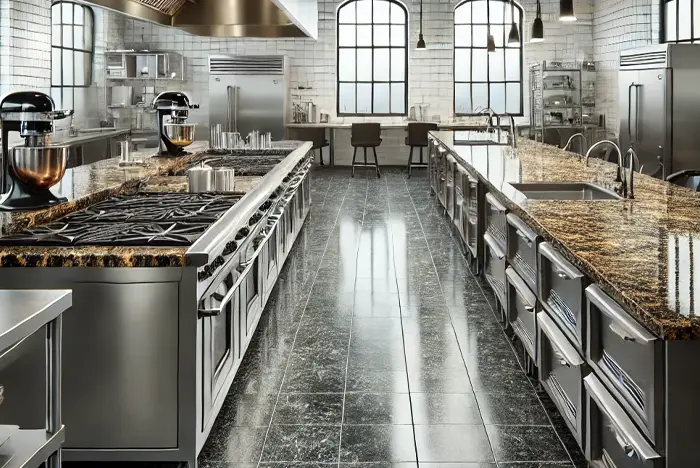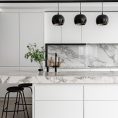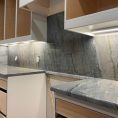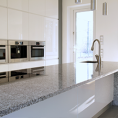A Guide to Choosing Countertops for Commercial Kitchens

Selecting the appropriate countertop for a commercial kitchen is essential to maintaining efficiency, hygiene, and longevity in a high-traffic setting. The correct material should be designed to endure heavy commercial use, easy to maintain for cleanliness, and conform to health and safety regulations. So what are the best options we recommend for the best tops for your restaurant, café, and catering kitchens?
1. Prioritize Durability
Commercial kitchens see a lot of wear and tear, so choosing a durable material is important. The best options include:
- Stainless steel: Very resistant to heat, stains and corrosion.
- Quartz: Non-porous, scratch-resistant, good for high-use areas.
- Granite: Durable and heat-resistant, but should be sealed periodically.
2. Convey the Importance of Hygiene and Food Safety
In a commercial kitchen, one of the most important aspects of food prep is having a clean surface to work in. Here are some commonly hygienic countertop materials:
- Stainless Steel: Non-porous and resistant to bacteria, this is a top pick in the restaurant trade.
- Quartz: Liquid resistant, so there’s less chance of contamination.
- Solid Surface (Corian): Seamless installation reduces bacterial growth.
3. SymptomConsider Heat and Chemical Resistance
Working in a high-temperature environment, your countertop has to resist heat and cleaning chemicals:
- Stainless steel: Can withstand heat from hot pots and heavy-duty cleaning products.
- Quartz & Granite: Resistant to high temperatures, but must take caution against high temperatures.
- Concrete: Customizable, heat resistant but needs to be sealed.
4. Easy Maintenance is Key
Counters in commercial kitchens must be easy to clean and low-maintenance.
- Stainless Steel and Quartz: Easy to wipe down and disinfect.
- Granite and Concrete: Needs to be sealed to stay stain-free, but will last forever.
- Laminate: Budget-friendly but less suited to heavy-use settings.
5. Maximize Countertop Layout and Functionality
What is the countertop layout that best defines kitchen efficiency and workflow? Consider:
- Using different countertop materials for prep areas (e.g., butcher block for chopping, stainless steel for food assembly).
- Providing enough space for more than one chef and any other kitchen staff.
- But we are also adapting integrated sinks as they facilitate cleaning process.
6. Consider Initial Cost vs. Lifetime Investment
It can be tempting to go for cost-effective solutions, but high-quality, durable countertops are a money-saver in the long run. Stainless steel and quartz represent a higher upfront investment but pay off in the long run for their durability and low maintenance.
Choosing the best countertop for a commercial kitchen is a matter of balancing durability, hygiene, upkeep and cost. Stainless steel, quartz and solid surfaces are among the top performers for high-traffic environments. So remember, if you choose a material that is safe and efficient, that is both aesthetically pleasing and professional, you should be set for success in all future kitchens.






